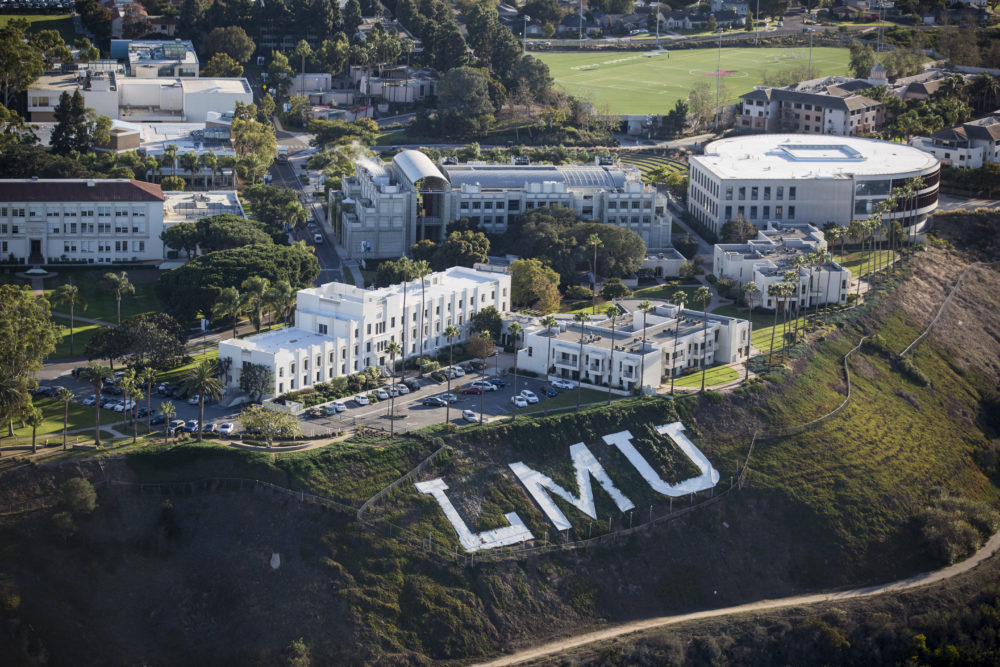

MISSION AND MINISTRY | Rabbi Zachary Zysman of LMU delivered this reflection for NewGround Iftar at the Wilshire Boulevard Temple on May 31, 2018. NewGround is a Jewish-Muslim partnership to advance a shared agenda for change.
As-Salaam Aleichem, Shalom, and good evening.
I’m Rabbi Zachary Zysman. I was a member of the NewGround Fellowship this past year. Part of what we do at New Ground — once we get to know one another — is talk about the Middle East.
I thought I knew something about the Middle East. I lived and studied in Jerusalem for a year, I saw the places, touched the ground, talked to people; learned from scholars, people much smarter than me.
When you know a little about something, it’s easy to think you get it. The truth is, the more I learn, the more I think I know, the less I understand.
When the NewGround fellowship began, I was newly ordained, freshly green, and I was the only rabbi or clergy member in the room. I was still figuring out what it means to be a rabbi. What should a rabbi feel and/or say — especially about Israel?
Hedab Tarifi was the only Palestinian in our cohort. At first, I was intimidated; I was afraid to connect with her. What if I said the wrong thing? Hedab was a leader in her community, someone who had clearly engaged in interfaith work before.
And it was really hard for me. Hedab disagreed with everything and everyone in the room. She wouldn’t call Israel, Israel. She called it Palestine. [I never met anyone like her, in person. She set off all my triggers, corresponded to all my implicit bias, all the stereotypes.…] I did not want anything to do with her.
And then I heard her story. How her family went from place to place, losing home after home, looking for somewhere safe. How her parents sent her to the United States alone at the age of 17 to pursue a better life than they could ever have, moving around, shuffling from place to place, in Palestine and Egypt.
There was something about Hedab’s swagger and grit that reminded me of my Bubbie, grandmother. Born Serla Berkowitz in Gruetz, Poland on May 3, 1919, she lived a blissful life until, at age twenty, she had to leave her beloved home, go from place to place, all alone. Two different histories, of course. But so much loss, and when I heard Hedab speak about the loss of her family and her home, her intensity was so familiar, it reminded me of my Bubbie, whenever she talked about home.
Meeting Hedab, getting to know her has been challenging. She is familiar and yet she comes from a place I cannot begin to fathom. We still get under each other’s skin. But I think we have both learned patience. And respect for one another as other.
Speaking for myself, what changed things for me — what allowed me to quiet myself — was hearing Hedab’s story, and the realization that in a different dimension, or multi-verse, she could have been my Bubbie telling me her story about Gruetz.
A few weeks ago, Hedab agreed to meet with me at Panera Bakery in Glendale. I had asked her to tell me about Ramadan. A rabbi and a Palestinian walk into a bakery, right? Me, in a kippah, Hedab in hijab.
It was midday. I was starving, so I got there early and ordered food, hoping to finish by the time she arrived. I wanted to at least pretend to fast. With her. She got there early, too. I clumsily tried to hide the food under the table. She said, don’t worry. Pick it up.
I wanted to learn about Ramadan, what it means to Hedab. Morning prayers, she said, begin at 4:31 a.m. In order to prepare she wakes at 3. Hedab has some food, doesn’t eat again until almost 8. Like tonight. And this goes on for 30 days.
Yom Kippur. I complain about fasting for just one day.
Hedab told me how much she looks forward to Ramadan, despite the early hours, long days, the fasting. The cleansing nature of the holiday, connecting with God, spiritual growth and the inner connection she feels with people who do not have a meal at the end of the day.
If it were not for NewGround, would I even know Hedab? Would I ever get close enough to hear what she has lived, find out who she is, listen to what she has to teach me?
The Hebrew prayer, the Shema, invites us, urges us, commands us even, to hear, to listen. Some of you may know my dear friend, Rabbi Arthur Gross-Schaefer, and remember his son Avi, z” l.
They teach, “An enemy is someone whose story you have not yet heard.” Stories open up possibility.
May this be God’s will. Ken Y’heye Ratson!
Ramadan Mu-barek.



